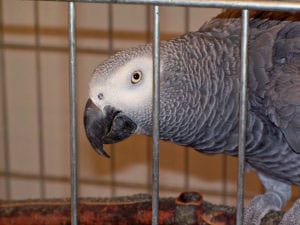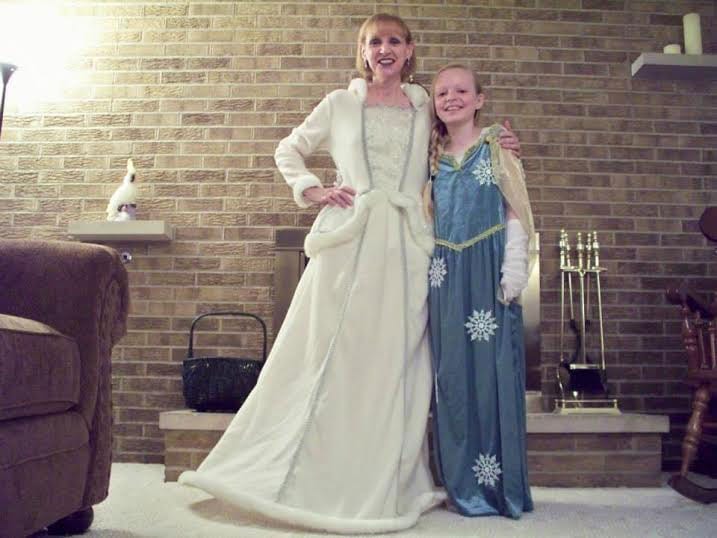Meet Melissa, a wife, mother and advocate. Patient Worthy interviewed Melissa about her #InvisibleIllness – gastroparesis.
Almost two years ago, un-welcomed and without warning, gastroparesis enetered Melissa’s life. “I was fine one day and the next day I was in the hospital with extreme pain.” She states that her experience was atypical in that she was diagnosed within the week; many suffering from gastroparesis go undiagnosed for weeks, months, or even years. She acknowledges that in that way she was lucky, but that she “left the hospital completely unprepared for what I was going to face.” She had never heard of gastroparesis before she was diagnosed, she hadn’t even known it existed.
“I’ve learned a lot more about the medical world than I ever thought was possible. I was told very little leaving the hospital besides schedule a follow up appointment. Besides that I was left on my own with very little knowledge of medications and diet. I was told to start with liquids and work my way up and that I’d be eating normally again soon, but that didn’t happen.”
Before Melissa could be seen for her follow-up appointment, her health began to decline rapidly. She couldn’t keep liquids down, and truly believed she was close to death. A new medication helped stop the incessant vomiting, but Melissa fights everyday and suffers greatly from incredible pain, can only handle soft foods and struggles to get enough calories.
“I wake up fatigued and hungry and it’s very hard to get out of bed and face the day in that state of mind. You have to find a way to find some hope, when you sometimes feel you wish you hadn’t woken up. That mental aspect of knowing every morning ‘I have to deal with this every day, all day long, there’s no end in sight’ is a constant battle for me.”
Melissa’s life has changed drastically since her diagnosis. Often, her family feels guilty eating in front of her. Although, “incredibly sensitive and understanding” Melissa says her daughter will often hide around the house when eating.
Sometimes for hours, Melissa sits with a heating pad on her abdomen to help ease her pain. Everyday is an #invisiblefight.
“I cannot engage in most of the activities that I did before. I can’t do the simple things like having a meal with family, or going out to eat with them. I’m always fatigued and have trouble getting household chores done, it’s frustrating, I hate having to be helped. I depend on people a lot more now.”
Melissa never really cooked. Ironically, just before her diagnosis, she decided it was time for a new hobby and began to learn to cook and bake. Despite how difficult it can sometimes be, Melissa hasn’t given her “new hobby” up. Melissa is married with an eleven year old daughter, and her family really enjoys her baking. Melissa is quite the baker! But she buys food, walks past food, prepares food, smells food, and can’t eat most of it. We asked if there was a particular food she missed most,
“Pizza.” She said, “I would just kill for a pizza.”
She’s either hungry or she’s in pain from eating. She explains, “There’s never a moment when you’re not thinking about it.”
She sometimes eats baby food in order to supplement her meager diet. “I’m on the mailing list for baby food companies, they think I have a baby, I buy so many products. It’s horrible. You miss vegetables. You wouldn’t think it possible. It’s not very good but you learn to eat it. My daughter tasted some baby vegetables and she spit it out saying “I can’t believe you made me eat this when I was a baby!”

One day Melissa remembers cutting up vegetables for her African Grey parrot, Grover and it hit her that, “the bird eats better than I do. It’s upsetting, It’s so frustrating, but you have to find ways of coping with it because it isn’t going away.” She’s discovered various of ways doing that, advising that other patients find things “that can distract you from what you’re going through for a few moments”. She runs on her treadmill and takes walks outside to stay active. She reads and listens to music. She acknowledges that many “don’t exercise because they’re so tired and have so few calories to spend, but it makes me feel a little more normal and improves my mood just to know that I’m doing something.”
Melissa tries to attend as many of her daughter’s school events as she possibly can, but she can’t always make it. Further her daughter doesn’t like that she has to skip meals in order to go. On the occasion that she goes to something that’s late in the day she’ll avoid eating all day so that she won’t be in too much pain. Her husband is equally understanding. As she puts it he “has to be a little bit of both parents sometimes, he has to pick up some of the slack. He goes to events that I used to go to and does some of the chores I can’t do anymore. I wonder how people who live alone manage, it’s such a help just to have someone pick up your medication for you.” Melissa’s daughter never complains when she can’t make it somewhere, and her husband never makes her feel like a burden, but Melissa knows the toll her disease can take on her family.
“My family is very supportive, everybody, and that’s not always typical, I’m so blessed to have the family and friends that I do”
Melissa’s family and friends aren’t her only source of support. She said, “#myarmy has grown since my diagnosis.” Especially when she came across the Facebook group, Gastroparesis Support Group.
“The online groups are fantastic if you’re up at 2am with nowhere to turn. You can post and 15 people will comment and talk to you and try to help. I can’t leave my home for the most part and they’ve been incredible. I started participating very slowly because I was worried and didn’t know much and now I’m an administrator for the group. I’ve made incredible friends in these support groups it’s amazing to me how much support there is out there and how much people care. This disease various so much from person to person. One person’s experience won’t be another’s. You either hear, ‘ oh it’s no big deal’ or ‘this is horrible you’ll never recover’, most people fall somewhere between that continuum. It’s scary, but its manageable I think you just have to go out on your own, on the internet and to other patients to get the kind of information you’re seeking. I see people left wandering in the dark but there is help out there you just have to seek it yourself.”
Melissa feels lucky to have friends and family who are understanding, but states that some still expect her to get better, rather than fully realizing the chronic nature of her condition. She also told us how the false stigma and judgement she has experienced, “can be pretty hurtful.”
“When I was released from the hospital I thought I’d just be on liquids and soft foods and then go back to normal, like what it was before, but it is a chronic condition and that should be made clear. Regular family physicians often don’t know about gastroparesis. One doctor believes to this day that I’m an anorexic, she doesn’t believe the condition. Many people are misunderstood when they have to go in to the ER. They’ll go in for extreme abdominal pain and be turned away as a drug seeker. A lack of understanding is very, very common and unfortunate.”
Still, Melissa chooses to see a positive side to all of this. She says she has “been given a purpose. I don’t take anything for granted and I’ve learned very quickly who cares about me.” She’s very happy to be able to be so active on the Facebook groups and to be an advocate for gastroparesis awareness.
“People don’t understand how much it helps to give back it gives me a sense of purpose I’m doing something that might help somebody else rather than just be miserable about my own situation. You can still make a difference.”
 Editor’s Note:Patient Worthy feels lucky to have had the opportunity to speak with such a cheerful, ambitious women with a cause! Go Melissa! We can’t wait to see what you do next within the patient and gastroparesis communities! And we will be right there beside you in your efforts!To hear more about Melissa and her journey with gastroparesis, check out her Advocacy Group’s Community page on Facebook: “Gastroparesis: Fighting for Change” and Main Website’s Support Group.
Editor’s Note:Patient Worthy feels lucky to have had the opportunity to speak with such a cheerful, ambitious women with a cause! Go Melissa! We can’t wait to see what you do next within the patient and gastroparesis communities! And we will be right there beside you in your efforts!To hear more about Melissa and her journey with gastroparesis, check out her Advocacy Group’s Community page on Facebook: “Gastroparesis: Fighting for Change” and Main Website’s Support Group.

